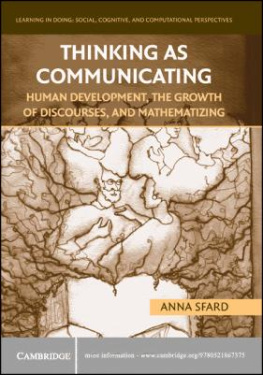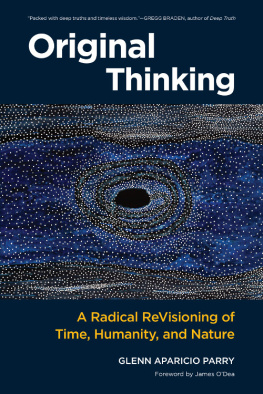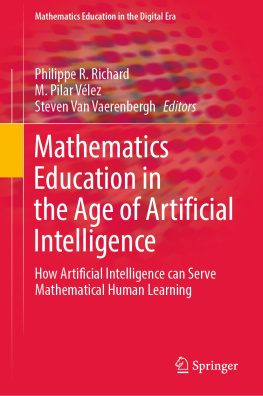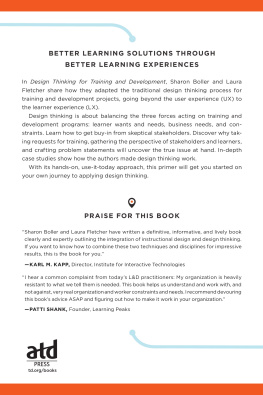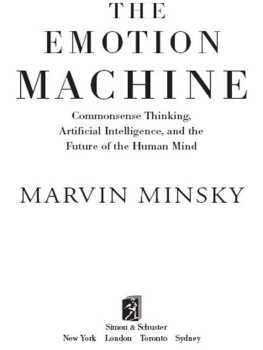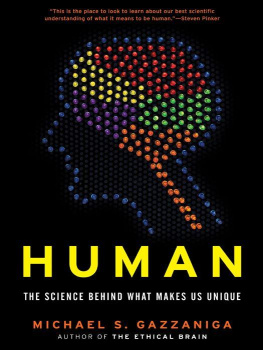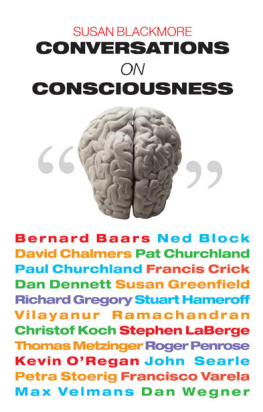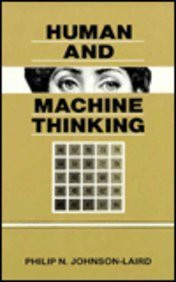
Thinking as communicating
This book is an attempt to change our thinking about thinking. Anna Sfard undertakes this task convinced that many long-standing, seemingly irresolvable quandaries regarding human development originate in ambiguities of the existing discourses on thinking. Standing on the shoulders of Vygotsky and Wittgenstein, the author defines thinking as a form of communication. The disappearance of the time-honored thinking-communicating dichotomy is epitomized by Sfards term, commognition , which combines communication with cognition. The commognitive tenet implies that verbal communication with its distinctive property of recursive self-reference may be the primary source of humans unique ability to accumulate the complexity of their action from one generation to another. The explanatory power of the commognitive framework and the manner in which it contributes to our understanding of human development is illustrated through commognitive analysis of mathematical discourse accompanied by vignettes from mathematics classrooms.
ANNA SFARD is based at the University of Haifa in Israel and holds a joint appointment as Lappan-Phillips-Fitzgerald Professor of Mathematics Education at Michigan State University and as Professor of Mathematics at the University of London. In a series of studies in Israel, Canada, and the United States, she has been investigating the development of mathematical thinking in both history and individual learning. Results of these studies, both theoretical and empirical, have been published in more than 100 articles and edited volumes, many of which have been widely cited.
Learning in doing: social, cognitive, and computational perspectives
Series editor Emeritus
John Seely Brown
Xerox Palo Alto Research Center
General editors
Roy Pea
Professor of Education and the Learning Sciences and Director, Stanford Center for Innovations in Learning, Stanford University
Christian Heath
The Management Centre, Kings College, London
Lucy A. Suchman
Centre for Science Studies and Department of Sociology, Lancaster University, UK
Plans and Situated Actions: The Problem of Human-Machine Communication
Lucy A. Suchman
The Construction Zone: Working for Cognitive Change in Schools
Denis Newman, Peg Griffin, and Michael Cole
Situated Learning: Legitimate Peripheral Participation
Jean Lave and Etienne Wenger
Street Mathematics and School Mathematics
Terezinha Nunes, David William Carraher, and Analucia Dias Schliemann
Understanding Practice: Perspectives on Activity and Context
Seth Chaiklin and Jean Lave
Distributed Cognitions: Psychological and Educational Considerations
Gavriel Salomon
The Computer as Medium
Peter Bogh Andersen, Berit Holmqvist, and Jens F. Jensen
Sociocultural Studies of Mind
James V. Wertsch, Pablo Del Rio, and Amelia Alvarez
To my parents, Janina and Zygmunt Bauman
Thinking as Communicating
Human Development, the Growth of Discourses, and Mathematizing
Anna Sfard
The University of Haifa, Israel
Michigan State University

CAMBRIDGE UNIVERSITY PRESS
Cambridge, New York, Melbourne, Madrid, Cape Town, Singapore, So Paulo, Delhi
Cambridge University Press
32 Avenue of the Americas, New York, NY 10013-2473, USA
www.cambridge.org
Information on this title: www.cambridge.org/9780521867375
Anna Sfard 2008
This publication is in copyright. Subject to statutory exception
and to the provisions of relevant collective licensing agreements,
no reproduction of any part may take place without
the written permission of Cambridge University Press.
First published in print format 2008
ISBN 978-0-511-37536-1 mobipocket
ISBN 978-0-511-37958-1 eBook (Kindle Edition)
ISBN 978-0-521-86737-5 hardback
Cambridge University Press has no responsibility for the persistence or accuracy of URLs for external or third-party Internet Web sites referred to in this publication and does not guarantee that any content on such Web sites is, or will remain, accurate or appropriate.
Contents |
| 1 |
| 1 |
| 2 |
| 3 |
| 4 |
| 5 |
| 6 |
| 2 |
| 1 |
| 2 |
| 3 |
| 4 |
| 5 |
| 6 |
| 3 |
| 1 |
| 2 |
| 3 |
| 4 |
| 5 |
| 4 |
| 1 |
| 2 |
| 3 |
| 4 |
| 5 |
| 5 |
| 1 |
| 2 |
| 3 |
| 4 |
| 5 |
| 6 |
| 1 |
| 2 |
| 3 |
| 4 |
| 5 |
| 7 |
| 1 |
| 2 |
| 3 |
| 4 |
| 5 |
| 8 |
| 1 |
| 2 |
| 3 |
| 4 |
| 5 |
| 9 |
| 1 |
| 2 |
| 3 |
| 4 |
| 5 |
| 6 |
Series foreword
This series for Cambridge University Press is widely known as an international forum for studies of situated learning and cognition.
Innovative contributions are being made by anthropology; by cognitive, developmental, and cultural psychology; by computer science; by education; and by social theory. These contributions are providing the basis for new ways of understanding the social, historical, and contextual nature of learning, thinking, and practice that emerge from human activity. The empirical settings of these research inquiries range from the classroom to the workplace, to the high-technology office, and to learning in the streets and in other communities of practice. The situated nature of learning and remembering through activity is a central fact. It may appear obvious that human minds develop in social situations and extend their sphere of activity and communicative competencies. But cognitive theories of knowledge representation and learning alone have not provided sufficient insight into these relationships.
This series was born of the conviction that new and exciting interdisciplinary syntheses are underway as scholars and practitioners from diverse fields seek to develop theory and empirical investigations adequate for characterizing the complex relations of social and mental life, and for understanding successful learning wherever it occurs. The series invites contributions that advance our understanding of these seminal issues.
Introduction
If we see knowing not as having an essence, to be described by scientists or philosophers, but rather as a right, by current standards, to believe, then we are well on the way to seeing conversation as the ultimate context within which knowledge is to be understood. Our focus shifts from the relation between human beings and the objects of their inquiry to the relation between alternative standards of justification, and from there to the actual changes in those standards which make up intellectual history.

